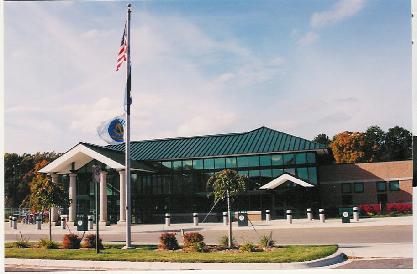 The intention of this post is to give you a brief overview of what to expect if you are being charged with Operating While Intoxicated (OWI) arising out of the 18th District Court in the City of Westland. The 18th District Court is presided over by the Honorable Judges Sandra Ference Cicirelli and Mark A. McConnell. Based on our firm’s experience, the 18th District Court will treat you fairly and your case will be handled efficiently. By treated “fairly”, we mean that if you are a first offender whose OWI is reduced to the lower offense of Operating While Visibly Impaired (OWVI), the Court’s sentence will be reasonable as I will explain. When I say that a first offense will be handled “efficiently”, we mean that your case can be handled in 1 court appearance if it is resolved by way of plea bargaining under certain circumstances. However, if motions are filed or your case is scheduled for trial, there will be other necessary proceedings. This blog will focus on the vast majority of cases which are resolved by way of a plea bargain.
The intention of this post is to give you a brief overview of what to expect if you are being charged with Operating While Intoxicated (OWI) arising out of the 18th District Court in the City of Westland. The 18th District Court is presided over by the Honorable Judges Sandra Ference Cicirelli and Mark A. McConnell. Based on our firm’s experience, the 18th District Court will treat you fairly and your case will be handled efficiently. By treated “fairly”, we mean that if you are a first offender whose OWI is reduced to the lower offense of Operating While Visibly Impaired (OWVI), the Court’s sentence will be reasonable as I will explain. When I say that a first offense will be handled “efficiently”, we mean that your case can be handled in 1 court appearance if it is resolved by way of plea bargaining under certain circumstances. However, if motions are filed or your case is scheduled for trial, there will be other necessary proceedings. This blog will focus on the vast majority of cases which are resolved by way of a plea bargain.
When charged with a crime, our firm will consider all of the evidence and make recommendations to our clients as to the best course of action. In reality, the vast majority of criminal offenses and drunk driving cases are resolved by means of plea bargaining. When representing a client charged with an OWI who does not have a good case for trial, our law firm typically has three goals;
-Get the charge reduced, typically to an “Operating While Visibly Impaired” (colloquially referred to as an “OWVI” or simply an “Impaired”);
-Avoid jail time; and
-Minimize the length, terms and conditions of probation.
Discussed in other blog posts, most drunk driving cases do not make great cases for trial. Presumptive evidence of intoxication is established by a valid traffic stop, failed roadside sobriety tests, and Blood Alcohol Content (BAC) results of .08% or greater. For that reason, we usually fight to secure the lesser charge of Impaired Driving and seek recommendations from the prosecuting authority for sentence leniency. The merits of the Impaired Driving charge have also been discussed at length in our previous blog posts. Generally, an OWI which is reduced to OWVI is less points, saves our clients $1,000.00 in driver responsibility fees, involves a shorter period of action against one’s license and does not involve any mandatory period of license suspension before issuance of a restricted license.
In most other courts, the process to resolve a drinking and driving offense requires at least 3 court appearances which include pretrial conference, substance abuse assessment and sentencing. However, the 18th District Court will endeavor to handle the entire case on the same date. It is our experience that getting to the 18th District Court by 8:00 a.m., knowing our Client’s case and being prepared to advocate with the prosecutor are essential for a case to be resolved in the efficient manner which I have described compared to cases which languish for several months and require multiple stressful Court appearances.
At the time of sentencing, the Court will determine the extent and terms of probation along with fines and costs. The maximum term of probation for a first offense Impaired Driving is 2 years. In our experience, first time offenders for Impaired Driving should expect 12 months probation in the 18th District Court. Probation may be reporting (to a probation officer) or non-reporting. Non-reporting probation is preferred and is less intrusive upon one’s daily routine. The 18th District Court will normally allow time to pay fines and costs. However, in a recent case handled by our firm, the Court said that our client’s reporting probation will be converted to non-reporting probation after payment of fines and costs.
Continue reading ›
 Michigan Criminal Lawyer Blog
Michigan Criminal Lawyer Blog














 Almost every week a very familiar scenario plays out in our office. A client will come in, sit down for a consultation, and discuss with us the facts of his or her
Almost every week a very familiar scenario plays out in our office. A client will come in, sit down for a consultation, and discuss with us the facts of his or her ![Teen%20Text%20closeup%20%20%20500[1].jpg](https://www.michigancriminallawyer-blog.com/files/2015/02/Teen-Text-closeup-5001.jpg) A NO CONTACT ORDER can be ordered in virtually any criminal case including retail fraud/shoplifting cases. In Macomb County, courts will invariably enter a NO CONTACT ORDER against an offender as a bond condition or upon conviction of retail fraud/shoplifting at the time of sentencing. In Michigan, courts routinely impose a NO CONTACT ORDER as a condition of being released or bonded for personal criminal offenses such as
A NO CONTACT ORDER can be ordered in virtually any criminal case including retail fraud/shoplifting cases. In Macomb County, courts will invariably enter a NO CONTACT ORDER against an offender as a bond condition or upon conviction of retail fraud/shoplifting at the time of sentencing. In Michigan, courts routinely impose a NO CONTACT ORDER as a condition of being released or bonded for personal criminal offenses such as  MYTH #1: Underage drivers cannot be charged with a
MYTH #1: Underage drivers cannot be charged with a ![Photo+of+woman+arrested+in+need+of+a+DUI+attorney+in+Seattle$2C+WA.[1].jpg](https://www.michigancriminallawyer-blog.com/files/2015/02/Photo-of-woman-arrested-in-need-of-a-DUI-attorney-in-Seattle2C-WA.1.jpg) This blog will focus on first offense
This blog will focus on first offense ![41B%20District%20Court[1].jpg](https://www.michigancriminallawyer-blog.com/files/2015/02/41B-District-Court1.jpg) Most drunk driving (DUI or OWI) cases in
Most drunk driving (DUI or OWI) cases in 
 With fall quickly approaching many students are bracing for their return to college. Many college age students from
With fall quickly approaching many students are bracing for their return to college. Many college age students from